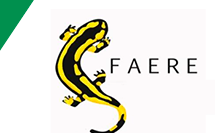Labels are increasingly popular among policy-makers, companies and NGOs to improve consumers awareness, especially about environmental footprints. Yet, the eÿciency of these informational tools is mostly looked as their ability to shift behaviors, whereas their first goal is to enable people to discriminate labelled goods. This paper studies how the complex information displayed by houses' Energy Performance Certificates is processed by real economic agents. Through a randomized framed field experiment on 3,000 French subjects, we test the impact of these labels on people's perception of a home energy performance.
Results evidence that 24% of subjects did not take heed of the energy label. Unex-pectedly, we find out that gender is the most di˙erentiating characteristic in this changing sensitivity to energy performance certificates. We interpret this e˙ect by the Selectivity Hypothesis: energy labels design engages more male subjects.
Among sensitive subjects, energy labels' eÿciency to transmit information is mixed, as our results indicate a Bayesian reading of houses energy labels. Subjects identify sepa-rately each label's grades, and their perception is not systematically biased by individual characteristics, but idiosyncratic features blur their judgment. Moreover, this perception exhibits strong asymmetries. While worsening grades induce decreasing judgments, up-grading label's class do not strongly enhance people's evaluation of energy quality: on the contrary, top level quality label seems to undergo skepticism and intensifies idiosyncratic noise.
Programme > Papiers par présentateur > Civel EdouardGreen, yellow or red lemons? Framed field experiment on houses energy labels perception.
1 : EconomiX
U. Paris-Nanterre
2 : Chaire économie du climat
-
Site web
Chaire économie du climat
Chaire Economie du Climat Palais Brongniart, 4e étage 28 place de la Bourse 75002 Paris -
France
|




